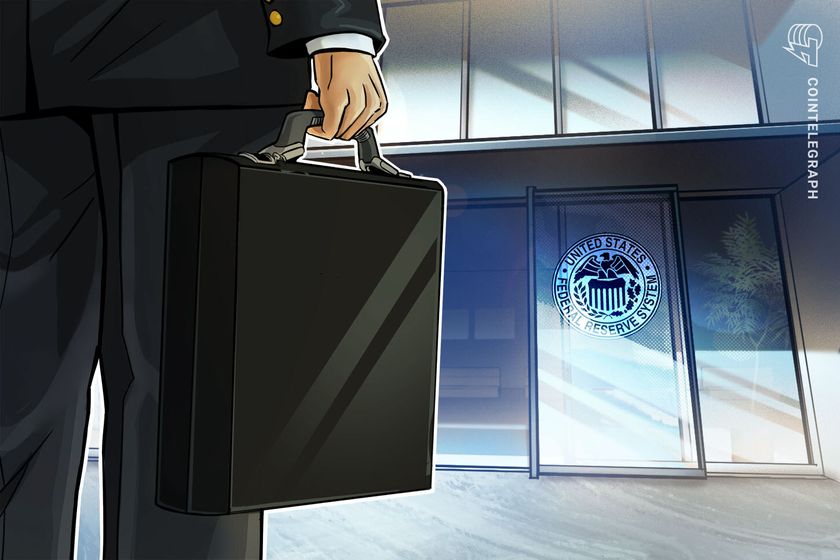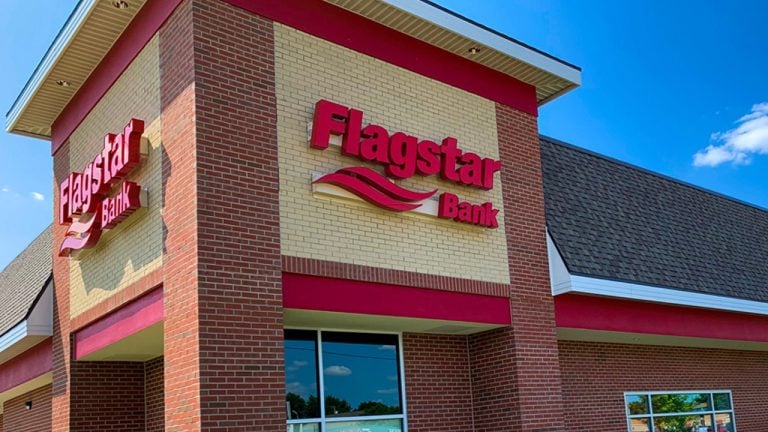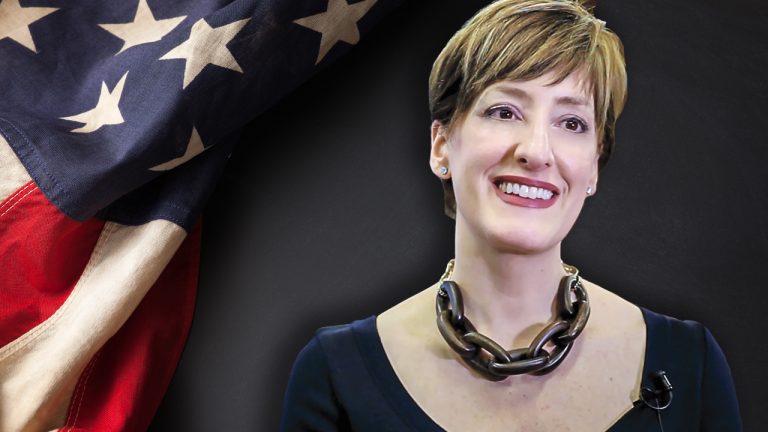
A top US regulator’s recent easing of its stance on crypto doesn’t mean that the US government’s crusade against the industry is over, according to Custodia Bank CEO Caitlin Long. Late last week, the Office of the Comptroller of the Currency (OCC) announced that banks in the US could now go ahead with a range […]
The post Operation Choke Point 2.0 Not Over Despite OCC Easing Crypto Rules, Says Custodia Bank CEO Caitlin Long appeared first on The Daily Hodl.

Fed’s Barr once said the Federal Reserve would “likely view it as unsafe and unsound for banks to directly own crypto-assets on their balance sheets.”
The United States Federal Reserve’s Michael Barr is set to resign as vice chair for supervision — marking the latest exit by a US official apparently linked to “Operation Chokepoint 2.0” — a purportedly concerted federal effort to debank crypto companies.
Barr’s resignation will take effect on Feb. 28 — or earlier, if a successor is appointed, he said in a Jan. 6 letter addressed to US President Joe Biden.
Barr will, however, continue to serve as a member of the Federal Reserve Board of Governors.

A seasoned Wall Street investor is issuing a warning that the Fed’s long battle with inflation is likely not yet over. In a new interview with Kitco News, Custodia Bank chief executive Caitlin Long says that the Fed will surprise people and continue to raise interest rates. Long says her prediction is based on her […]
The post Wall Street Veteran Caitlin Long Warns of More Rate Hikes, Says Recession Is Already Happening in the US appeared first on The Daily Hodl.
 The United States’ attempts to “assassinate crypto” are illegal and unlikely to succeed because “crypto is global,” Steven Boykey Sidley, a South African professor and author, has argued. According to Sidley, many formerly U.S.-based companies and innovators have fled the country and have set up bases in countries with more “comfortable” regulatory environments. The United […]
The United States’ attempts to “assassinate crypto” are illegal and unlikely to succeed because “crypto is global,” Steven Boykey Sidley, a South African professor and author, has argued. According to Sidley, many formerly U.S.-based companies and innovators have fled the country and have set up bases in countries with more “comfortable” regulatory environments. The United […] On Monday, about a week after the collapse of Signature Bank, the Federal Deposit Insurance Corporation (FDIC) announced that Flagstar Bank, a wholly owned subsidiary of New York Community Bancorp, acquired 40 former branches of Signature and its assets. Flagstar assumed nearly all of Signature’s deposits, except for $4 billion of deposits related to the […]
On Monday, about a week after the collapse of Signature Bank, the Federal Deposit Insurance Corporation (FDIC) announced that Flagstar Bank, a wholly owned subsidiary of New York Community Bancorp, acquired 40 former branches of Signature and its assets. Flagstar assumed nearly all of Signature’s deposits, except for $4 billion of deposits related to the […]
The Fed’s Vice Chair for Supervision emphasized that they do not want to curb innovation, but ensure that regulations protect households and the financial system.
The United States Federal Reserve is set to create a “specialized team of experts” to keep up with developments in the cryptocurrency industry, according to a Fed official, amid concerns from the Fed of “unregulated” stablecoins.
Speaking at the Peterson Institute for International Economics in Washington on Mar. 9, Vice Chair for Supervision Michael Barr admitted that crypto could have a “transformative effect” on the financial system, but added that “the benefits of innovation can only be realized if appropriate guardrails are in place.”
According to Barr, the new crypto team will help the Federal Reserve “learn from new developments and make sure we’re up to date on innovation in this sector,” adding:
“Innovation always comes quickly, but it takes time for consumers to become aware that they could both gain and lose money on new financial products.”
Meanwhile, Barr noted that regulation needs to be a “deliberative process” to ensure a balance is reached between over-regulation which “will stifle innovation” and under-regulation which “will allow for substantial harm to households and the financial system”
Related: Fed signals a sharp rate hike in March due to inflation — Here’s how Bitcoin traders can prepare
One subsect of crypto that Barr highlighted as a point of concern was stablecoins.
He suggested that the assets backing many stablecoins in circulation are illiquid, meaning that it can be difficult to liquidate them for cash when needed, arguing:
“This mismatch in value and liquidity is the recipe for a classic bank run.”
He believes that unless regulated by the Fed, any widespread adoption of stablecoins could put households, businesses, and the broader economy at risk.
Caitlin Long, the CEO of Custodia Bank — which has consistently been rejected from joining the Federal Reserve System — pointed out the irony in the comments from Barr given her belief that Silvergate Bank collapsed due to liquidity issues arising from a bank run.
UM, WASN'T THE FED #Silvergate's REGULATOR?♀️
— Caitlin Long ⚡️ (@CaitlinLong_) March 9, 2023
"The banks we regulate, in contrast, are well protected from bank runs thru a robust array of supervisory requirements."--Fed Vice Chair Supervision Michael Barr, speaking this morning(!)
h/t @ByKyleCampbellhttps://t.co/7UsHDKfiaC
Long also pointed to the current issues facing Silicon Valley Bank, whose shares plummeted after a Mar. 8 financial update disclosed that it sold $21 billion worth of its holdings at a $1.8 billion loss, prompting fears that it was forced to sell to free up capital.
FRIENDLY REMINDER that, right as the panic was happening in Silicon Valley, the Fed’s Vice Chair for Supervision Barr said in a speech: "The banks we regulate, in contrast, are well protected from bank runs thru a robust array of supervisory requirements."https://t.co/FpPl2Qlk7x
— Caitlin Long ⚡️ (@CaitlinLong_) March 10, 2023
 Caitlin Long, CEO of crypto bank Custodia, criticized the U.S. government for its handling of a massive crypto fraud that occurred months before the company’s collapse. She made her remarks in a blog post after disclosing evidence to law enforcement. Long’s post followed Custodia’s unsuccessful application to become a member of the Federal Reserve System, […]
Caitlin Long, CEO of crypto bank Custodia, criticized the U.S. government for its handling of a massive crypto fraud that occurred months before the company’s collapse. She made her remarks in a blog post after disclosing evidence to law enforcement. Long’s post followed Custodia’s unsuccessful application to become a member of the Federal Reserve System, […]
Caitlin Long revealed that she had warned government agencies of major “fraud” in the crypto space months before several firms went bankrupt.
The CEO of Custodia Bank Caitlin Long has slammed regulators and lawmakers in Washington D.C. for their “misguided crackdown” on the crypto sector, and also for ignoring her warnings of major “fraud” allegedly conducted by now-bankrupted entities.
In a Feb. 17 blog post titled “Shame On Washington, DC For Shooting A Messenger Who Warned of Crypto Debacle,” Long tore into the government for its approach to crypto regulation, failing to protect investors and alienating good actors in the space:
“Washington’s misguided crackdown will only push risks into the shadows, leaving regulators to play whack-a-mole as the risks continuously pop up in unexpected places.”
Long stressed that with her digital asset custody firm, she’s “been calling out the worst of crypto while trying to build a lawful, compliant alternative that relegates scams to the trash heap. But [...] most of today’s policymakers seem intent on killing the high-integrity innovators.”
The Custodia Bank CEO claimed that her efforts to work with government agencies were ultimately thrown back in her face, as she recounted the spate of negative run-ins her firm has had of late.
“Custodia was simultaneously attacked by the White House, the Federal Reserve Board of Governors, the Kansas City Fed and Senator Dick Durbin (who conflated our non-leveraged, 100-percent liquid and solvent bank with FTX in a Senate floor speech),” she said, adding that:
“Custodia tried to become federally regulated – the very result bipartisan policymakers claim to want. Yet Custodia has been denied and now disparaged for daring to come through the front door.”
Her sentiments echo that of figures such as Coinbase CEO Brian Armstrong, who has suggested on multiple occasions that the agencies such as the Securities and Exchange Commission (SEC) have reacted frostily to his firm’s efforts to maintain a dialogue in good faith.
Earlier this month, Armstrong also criticized the lack of regulatory clarity in the U.S. and what appears to be a “regulation by enforcement” approach following the SEC’s move to shut down Kraken’s staking services on Feb. 9.
“Today’s regulators and lawmakers in Washington are no doubt embarrassed that they failed to stop the criminals of crypto. DC is demanding scalps,” Long wrote in the blog post, adding that:
“Calls for a crackdown today are coming from many of the same policymakers who were charmed by the fraudsters. In a 180-degree turn, they’re now throwing the baby out with the bathwater.”
Over on Twitter, Long also suggested that well before the implosion of several crypto firms in 2022, she and many others had tried to warn Washington and “help law enforcement stop” major fraud, but to no avail.
Related: SEC vs. Kraken: A one-off or opening salvo in an assault on crypto?
Long stated that she was publicly disclosing for the first time that she had “handed over evidence to law enforcement of probable crimes” committed by an unnamed crypto firm “ months before that company imploded and stuck its millions of customers with losses.”
1/ IT'S TIME FOR ME TO REVEAL A FEW THINGS. I've just published a post "Shame On Washington, DC For Shooting A Messenger Who Warned Of #Crypto Debacle." Link to post is here:https://t.co/yTWWrEk3Os pic.twitter.com/rbo21DzOv3
— Caitlin Long ⚡️ (@CaitlinLong_) February 17, 2023
Kraken co-founder and CEO Jesse Powell responded to Long’s Twitter thread, and essentially corroborated her statements by noting that: “I can't tell you how infuriating it is to have pointed out massive red flags and obviously illegal activity to regulators only to have them ignore the issues for years.”
I can't tell you how infuriating it is to have pointed out massive red flags and obviously illegal activity to regulators only to have them ignore the issues for years. "They're offshore. It's complicated. We're looking at everybody." FOR YEARS. Then to be used as their example. https://t.co/YHdNazM2UE
— Jesse Powell (@jespow) February 18, 2023

If Wyoming Governor Mark Gordon signs the bill, from July 1 individuals in Wyoming will be protected from being forced to divulge their private keys, with one limited exception.
Wyoming lawmakers have passed a bill that will prohibit courts in the state from forcing someone to disclose their digital asset private keys, with one minor exception.
The bill was passed by a vote of 41-13 in the Wyoming House of Representatives on Feb. 15, a day after passing 31-0 in the Wyoming Senate.
If the bill is approved by Wyoming Governor Mark Gordon, the law will come into effect on July 1.

“No person shall be compelled to produce a private key or make a private key known to any other person in any civil, criminal, administrative, legislative or other proceeding[s]” in the state of Wyoming, the incoming law reads.
The law includes any private keys associated with digital assets, one’s digital identity or any other interests or rights to which the private key provides.
BIG STUFF--today the #Wyoming legislature passed a bill prohibiting compelled disclosure of private keys (w/ some exceptions), by a veto-proof majority! CONGRATS to @rothfuss @JaredSOlsen @itsmikeyin & special thx @ChristopherA. Next stop @governorgordonhttps://t.co/qu0OoWMzKO
— Caitlin Long ⚡️ (@CaitlinLong_) February 16, 2023
The minor exception involves when a public key is unavailable or is unable to disclose details of the digital asset, digital identity or other interest or right.
However, the act also states that the new law will not bar one from being compelled “to produce, sell, transfer, convey or disclose a digital asset, digital identity or other interest or right” that a private key could provide access to.
It also doesn’t prevent one from being compelled to “disclose information about the digital asset, digital identity or other interest or right.”
The new law — W.S. 34-29-107 — will be titled “Production of private keys; prohibition.”
The private keys legislation comes under Chapter 29 — Digital Assets which is a subset of Title 34 — Property, Conveyances and Security Transactions.
Related: Death and self-custody: How to pass on your crypto when you die
The passing of the bill comes as the private key law has been in the works since as early as September 2019.
Wyoming has long been touted as one of the most crypto-friendly states in the U.S.
It was the first state in the U.S. to declare a decentralized autonomous organization (DAO) as a limited liability company (LLC) in July 2021, and has previously considered a state-issued stablecoin in February 2022 — however, it appears that those endeavors haven’t progressed too much since then.